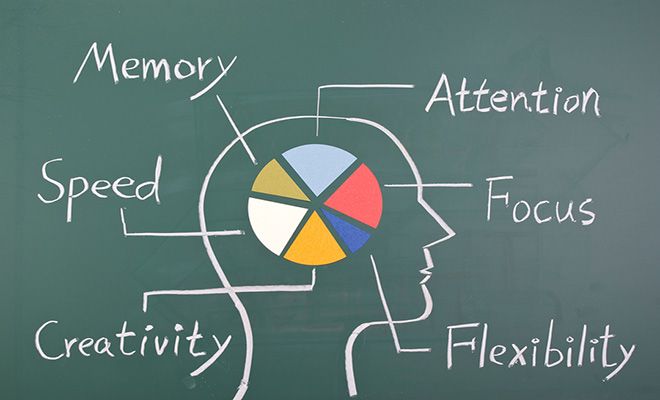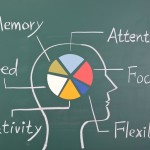
Brain Development
Teenage Brain Development (Dr. Scott Swartzwelder)
 Just when you need it the most. Finally, a way to understand what is happening in your teen’s brain. Join CJ as she talks to Dr. Scott Swartzwelder a professor of psychiatry, psychology, and neuroscientist at Duke University and author of “What are they thinking?!”. We’ll look at the teenage brain and cover what you need to know about your teen’s brain, the new drugs out there and the potential brain damage they present, and whether your teenager’s brain is rotting with video games.
Just when you need it the most. Finally, a way to understand what is happening in your teen’s brain. Join CJ as she talks to Dr. Scott Swartzwelder a professor of psychiatry, psychology, and neuroscientist at Duke University and author of “What are they thinking?!”. We’ll look at the teenage brain and cover what you need to know about your teen’s brain, the new drugs out there and the potential brain damage they present, and whether your teenager’s brain is rotting with video games.
Show Summary
- Segment 1: A succinct and super clear explanation of what is happening with your teen’s brain. You’ll finally understand why it’s so hard for your teens to remember things, plan, have impulse control, and make decisions. Scott describes why it’s important for your kid’s brain to have an array of different experiences.
- Segment 2: What drugs are now out there? What are some drugs that you should encourage your kids to NEVER try? Why is alcohol the one thing that Scott worries about the most? What are the powerful effects alcohol has on the brain?
- Segment 3: CJ takes a bunch of internet “facts” on the benefits of video games and Scott checks the veracity of these claims based on actual research. Will your child’s brain rot through playing video games? What are the real concerns with video games? What are reasonable limits on screen time for your teens?
- Segment 4: CJ continues the conversation between fact and fiction on video game benefits.
- Related content: Differences between girl/boy’s brain and sculpting your kid’s activities https://www.fireitupwithcj.com/2011/09/22/brain-science-dr-joanne-deak/, Expert advice on handling most common discipline issues: https://www.fireitupwithcj.com/2013/09/04/94-positive-parenting-solutions-listen-with-nagging/, Having a good conversation with your teen: https://www.fireitupwithcj.com/2013/09/09/911-parental-guidance-talking-with-your-teens/, Talking to your teen about Drugs/sex: https://www.fireitupwithcj.com/2012/09/27/sept-27th-help-for-parents-of-teens-is-on-the-way-dr-rob-lehman-and-julie-metzger/ and the Secret Life of Teens: https://www.fireitupwithcj.com/2011/09/08/sept-15-my-teenage-werewolf-the-inside-scoop-on-the-life-of-todays-teens/
Article by our Guest
source: http://www.aacap.org
Many parents do not understand why their teenagers occasionally behave in an impulsive, irrational, or dangerous way. At times, it seems like they don’t think things through or fully consider the consequences of their actions. Adolescents differ from adults in the way they behave, solve problems, and make decisions. There is a biological explanation for this difference. Studies have shown that brains continue to mature and develop throughout childhood and adolescence and well into early adulthood.
Scientists have identified a specific region of the brain called the amygdala which is responsible for instinctual reactions including fear and aggressive behavior. This region develops early. However, the frontal cortex, the area of the brain that controls reasoning and helps us think before we act, develops later. This part of the brain is still changing and maturing well into adulthood.
Other specific changes in the brain during adolescence include a rapid increase in the connections between the brain cells and pruning (refinement) of brain pathways. Nerve cells develop myelin, an insulating layer which helps cells communicate. All these changes are essential for the development of coordinated thought, action, and behavior.
Changing Brains Mean that Adolescents Act Differently From Adults
Pictures of the brain in action show that adolescents’ brains function differently than adults when decision-making and problem solving. Their actions are guided more by the amygdala and less by the frontal cortex. Research has also demonstrated that exposure to drugs and alcohol before birth, head trauma, or other types of brain injury can interfere with normal brain development during adolescence.
Based on the stage of their brain development, adolescents are more likely to:
- act on impulse
- misread or misinterpret social cues and emotions
- get into accidents of all kinds
- get involved in fights
- engage in dangerous or risky behavior
Adolescents are less likely to:
- think before they act
- pause to consider the potential consequences of their actions
- modify their dangerous or inappropriate behaviors
These brain differences don’t mean that young people can’t make good decisions or tell the difference between right and wrong. It also doesn’t mean that they shouldn’t be held responsible for their actions. But an awareness of these differences can help parents, teachers, advocates, and policy makers understand, anticipate, and manage the behavior of adolescents.
About Our Guest
 Dr. Scott Swartzwelder is a clinical neuropsychologist who studies the ways in which alcohol and other drugs interact with the brain, and particularly with brain mechanisms of learning and memory during adolescence and early adulthood. He has published over 130 scientific papers, written four books translating the science of drug actions into lay language, and has trained more than 50 scientists and clinicians. In addition he has created and taught several innovative college courses on brain mechanisms of memory and drug effects, and has consulted extensively as a scientific advisor with a number of national institutes and departments, as well as with numerous public education and policy organizations. In addition to his research, teaching, and clinical consultation, he now lectures and consults to promote effective education about the developing brain, alcohol, and other drugs.
Dr. Scott Swartzwelder is a clinical neuropsychologist who studies the ways in which alcohol and other drugs interact with the brain, and particularly with brain mechanisms of learning and memory during adolescence and early adulthood. He has published over 130 scientific papers, written four books translating the science of drug actions into lay language, and has trained more than 50 scientists and clinicians. In addition he has created and taught several innovative college courses on brain mechanisms of memory and drug effects, and has consulted extensively as a scientific advisor with a number of national institutes and departments, as well as with numerous public education and policy organizations. In addition to his research, teaching, and clinical consultation, he now lectures and consults to promote effective education about the developing brain, alcohol, and other drugs.
Podcast: Play in new window | Download
Subscribe: Apple Podcasts | RSS | podcast



